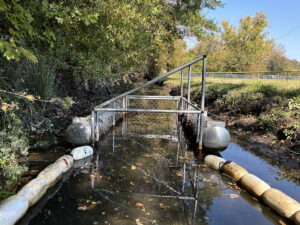News
A Riverkeeper’s Dedication: Protecting the Environment In and Out of the River
Education, Environmental, Sound Rivers
Posted on December 30th, 2019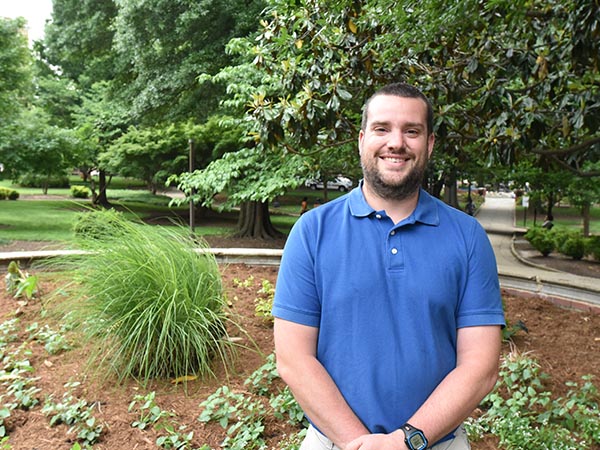
By S. Wayne Miles, P.E., Stormwater Program Manager for the City of Raleigh
 Matthew Starr, Upper Neuse Riverkeeper with Sound Rivers, has served on the City of Raleigh’s Stormwater Management Advisory Commission for six years with the last three as chair to the Commission. During this time, Matthew has been instrumental in carrying out many key stormwater initiatives that protect public water infrastructure, the environment, and the safety and well-being of Raleigh residents.
Matthew Starr, Upper Neuse Riverkeeper with Sound Rivers, has served on the City of Raleigh’s Stormwater Management Advisory Commission for six years with the last three as chair to the Commission. During this time, Matthew has been instrumental in carrying out many key stormwater initiatives that protect public water infrastructure, the environment, and the safety and well-being of Raleigh residents.
The level of commitment to this citizen advisory board and the communities that it serves is evident in the progress the Commission has made under Matthew’s leadership. Not only is he dedicated to monitoring and preventing water pollution in the Neuse River, Matthew is taking his work outside the river to ensure that the most effective policies are put in place to preserve water resources.
In 2018, Matthew and the rest of the Commission influenced a shift in the Raleigh Rainwater Rewards program. The Commission recommended policy changes that streamline the approval process for smaller projects that are a shared cost between the City and residents. Each project reduces the amount of stormwater pollution reaching streams, lakes, and rivers. With this change, there has been a steady increase in the number of projects completed through the program – A 200 percent increase to be exact going from nine projects to 26 projects valuing nearly $350,000 this year alone. Matthew also helped develop a multi-award winning green stormwater infrastructure policy that makes it easier for the development community to include natural and constructed landscape features in new construction that capture, absorb, and store stormwater runoff.
In addition, the Commission approves about 10 projects a year for the Drainage Assistance Program. These projects focus on alleviating severe streambank erosion, repairing private stormwater systems, and reducing flooding damage to buildings on private property that are affected by stormwater runoff coming from public streets. This past year was the second consecutive year that the Stormwater Management Division completed at least $1 million worth of projects. This is due in large part to the collaboration between the Commission and City staff. When he first joined the Commission, Matthew also played a major role in moving the program from a cost-share with residents to a fully-funded grant program. This change provides more resources and a more equitable distribution of program funds to neighborhoods across Raleigh that experience ongoing stormwater issues.
The Commission also focuses on reducing flooding impacts and improving flood monitoring throughout the city. In 2019, City staff installed cameras at eight locations in Raleigh to track creek and road flooding. The cameras help staff and first responders see flooding hazards in real-time rather than solely relying on stream gauge data. Also, several signs were placed across the city to alert residents when creek water is near the road. This is increasingly more vital as the southeast continues to see major hurricanes.
Matthew’s dedication does not stop there. He knows all too well that flooding cannot be completely prevented, especially when it is caused by creeks overflowing its banks. With the amount of heavy rainstorms happening more often – Matthew has steered the Commission to focus efforts on updating floodplain regulations. He recently assisted with the convening of a stakeholder group to make recommendations as to what can be built in the floodplain, what can be done about buildings that are in the floodplain that were built prior to current regulations, and addressing access issues to structures when it floods. Prior to this, the Commission supported the purchase of eight single-family homes that were built prior to current development regulations that were significantly affected by major flooding along Crabtree Creek. These efforts returned the area to green space allowing the floodplain to function more naturally reducing flooding hazards and safety concerns.
Throughout his service to the Commission, Matthew has put a spotlight on important stormwater issues in a way that moves this advisory board forward and keeps stormwater management a top priority in Raleigh. It goes without saying that Matthew’s contribution as riverkeeper to the Neuse River and chair to the Stormwater Management Advisory Commission will directly benefit the waterways that he is so dedicated to protecting now and in the future.
Related News
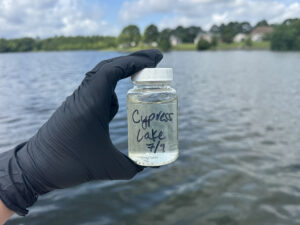
Specialist investigates lake connection to mysterious skin rash
July 10th 2025
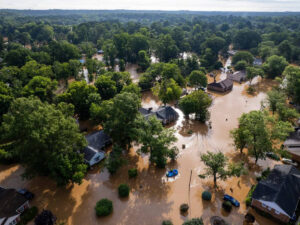
Riverkeeper: Central NC flooding part of a much larger issue
July 10th 2025

N.C. Governor vetoes bad rulemaking bill
July 10th 2025
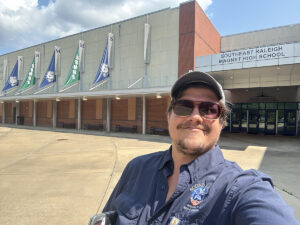
Riverkeeper, program director ‘Growing More than Rain Gardens’
July 10th 2025

Volunteer coordinator goes ‘fishing’
July 10th 2025
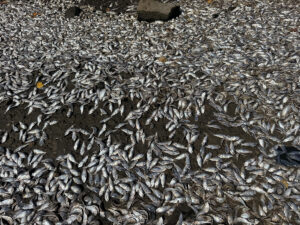
Neuse fish kill expected to extend beyond holiday weekend
July 3rd 2025
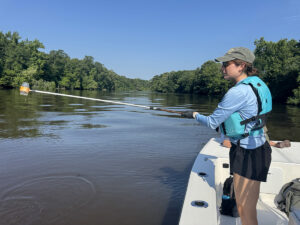
Swim Guide fails prompt Maple Cypress investigation
July 3rd 2025

Riverkeeper, town partners root out source of Smithfield sediment pollution
July 3rd 2025
